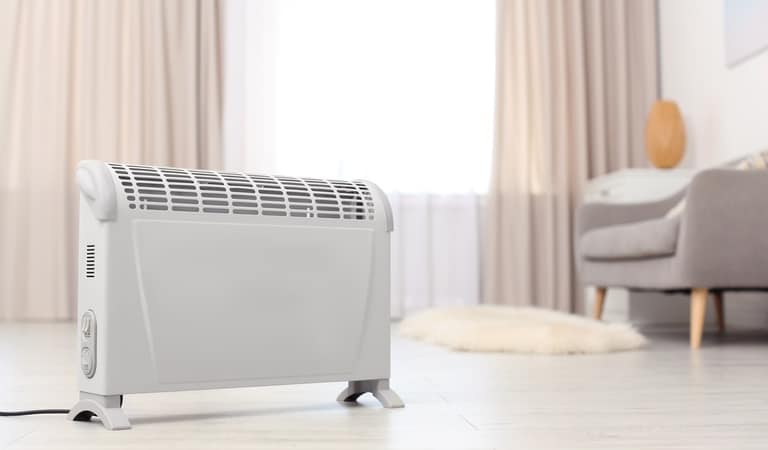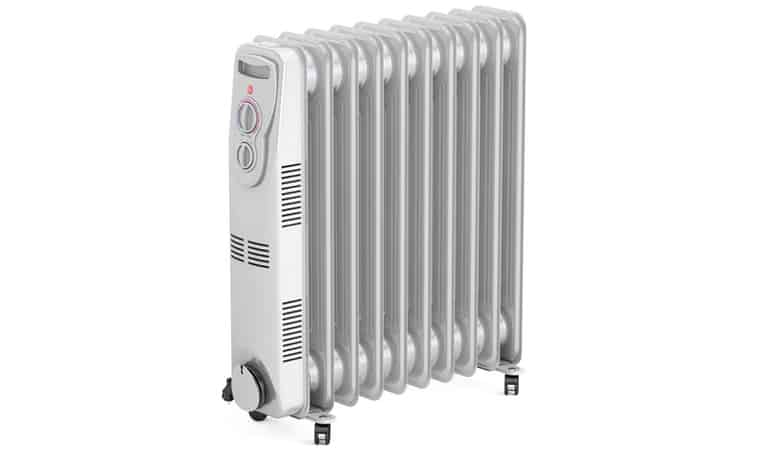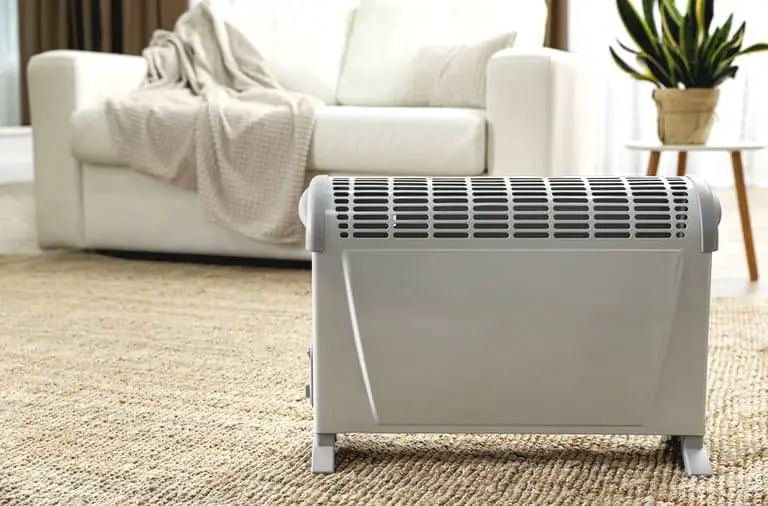The winter season requires people to heat their homes, and space heaters are often used to supplement an existing heating system.
But is a space heater a good idea? Can a landlord legally tell their tenant not to use a space heater? We’ll also discuss what to do if your landlord prohibits this form of heating.
By the end of this article, you should have a better understanding of both your landlord’s right to prohibit the use of space heaters and your tenant’s right to use a space heater.
Landlords do have the right to prohibit space heaters in rental properties for a variety of reasons. Some of the most common reasons include potential fire hazards and excessive electricity use. Tenants who fail to comply with a prohibition of space heaters may be subject to eviction.
Space heaters can pose a fire hazard if not used properly, so landlords may choose to prohibit their use in rental properties as a safety precaution. By prohibiting space heaters, landlords can help prevent potential fires and protect both their property and their tenants.
Additionally, space heaters can cause an increase in electricity usage, potentially leading to higher utility bills for the landlord.
It is important for tenants to understand and follow their landlord’s rules and regulations to ensure the safety and well-being of everyone in the rental property.
Landlords also have a responsibility to ensure that all electrical items in the property are regularly checked by a qualified electrician.
It is also worth investigating the need to install an additional heating method. Perhaps the central heating system is in need or repair, or may be the radiators just require bleeding to make them more efficient.
Contents
The Dangers Of Space Heaters
Fire is one of the biggest risks associated with using a space heater. If an electric heater is not properly maintained, it can cause a fire.
This is why it is important for landlords to ensure that space heaters are being used properly and safely. As such, it is important for landlords to ensure that any space heaters in their buildings are properly grounded and in good working order.
Overloading an electrical system can cause a fire. When too many space heaters are used improperly, they can overload the electrical circuits in a building. This can cause sparks which could lead to an electrical shock or even a fire.
To stay safe, always be sure to follow the manufacturer’s instructions and check the cord and plug of a space heater before each use.
Space heaters must be placed away from any furniture, draperies, or other flammable materials, and must be plugged directly into the wall socket. They also require regular inspections to ensure they are clean, and should never be left on when unattended.

As such, it is important for landlords to ensure that any space heaters in their buildings are properly grounded and in good working order.
Finally, space heaters are potentially dangerous to your health – if you have any respiratory problems or allergies, using a space heater may not be safe for you. Space heaters generate large amounts of hot air (which can rise quickly), and they also contain harmful chemicals such as mercury which may cause health concerns over time.
Landlord’s Right to Prohibit Space Heaters
As a landlord, you have the right to prohibit the use of space heaters in your rental property. This is typically done for safety reasons, as space heaters can pose a fire hazard if not used properly. By prohibiting space heaters, you are taking steps to protect your property and your tenants from potential dangers.
If the tenancy agreement does not prohibit space heaters, the landlord still has the right to prohibit them on grounds of safety.
A landlord who is considering allowing space heaters, should first and foremost check with their insurance company to see if space heaters are covered under the policy. Many insurance companies now have specific policies for space heaters, so it’s important to be sure before allowing them in their rented property.
Additionally, be aware of how much electricity the space heater uses – some can use a lot of power and result in a huge increase in utility bills.
Tenant’s Right to Use a Space Heater
If you’re a tenant, you may be wondering if your landlord can forbid you from using a space heater. While landlords generally can forbid tenants from using space heaters, there are some exceptions to this rule.
If the space heater is the only source of heating in the building and it is not being used for an unlawful purpose, then the landlord cannot prohibit its use.
Also, if local building regulation requires the use of space heaters in a particular area, then landlords cannot legally prohibit their use either.
In summary, while landlords generally have the right to forbid tenants from using space heaters in general, there are some exceptions to this rule that will depend on the tenants specific situation.
What To Do If Your Landlord Prohibits Space Heaters
If your landlord prohibits space heaters, there are still a few options available to you.
You can try to negotiate with your landlord to allow you to use a space heater. Alternatively, you can try to find other ways to stay warm without using a space heater.
Let’s take a look at some alternative options in more detail:
Oil Filled Radiators
Oil-filled radiators are an economical and affordable means of heating a room and an easy way to get warm at any time. Oil heaters retain their heat, even when turned off, which saves money and energy.

You can find models with thermostat control for more energy savings, and you will also have the option of wall-mounted or freestanding models.
Electric Blanket
An electric blanket can be a great addition to your home! Not only is it super cozy and comfortable, but it can also help you save money on your energy bills.
Electric blankets use less energy than other heating systems, so you can stay warm while using less electricity. Plus, they’re great for people with allergies since they don’t use any kind of fan or forced-air system.

Electric blankets are also known to be very safe, as they don’t emit any harmful emissions or cause any extra risk of fire.
Heated Mattress Pad
A heated mattress pad is a great way to stay comfortable and cozy in bed! It provides extra warmth without having to crank up the thermostat, saving you energy and money.
The gentle, even heat of a heated mattress pad can also help you relax and drift off to sleep, improving your quality of rest.
With so many health benefits, a heated mattress pad is a great purchase for your bedroom.
Hand Warmers
Hand warmers are a great way to stay warm and cozy during the cold winter months.
They are small, easy to use, and can be easily carried around in your pocket or purse as they are so portable.
Hand warmers provide a great source of heat to keep your hands warm and toasty during outdoor activities, or when you are just enjoying a nice leisurely stroll.

They provide immediate heat, so you don’t have to wait for a fire to start in order to warm up. They’re an affordable and safe way to keep your hands, feet, and other body parts warm no matter where you are.
Hand warmers are reusable, so you can enjoy their warmth over and over again no matter where you are during the winter season.
Of course, tenants can use draft stoppers to help keep their home warm and reduce the need for supplementary heating.
Related Articles
How Long Can You Leave A Tenant Without Heating?
Are Tenants Or Landlords Responsible For Bleeding The Radiators?
How Long Can You Leave A Tenant Without Hot Water?
In Short
Landlords have the right to tell tenants not to use space heaters, depending on the terms of the lease agreement and other factors.
If they decide to allow them, landlords should check their insurance policy and consider the safety risks associated with electric space heaters. They should also make sure that the tenant follows the manufacturer’s instructions regarding the placement and use of the heater.
Ultimately, it is the landlord’s responsibility to ensure the safety and comfort of the tenant, and they should take all reasonable steps to ensure this.



